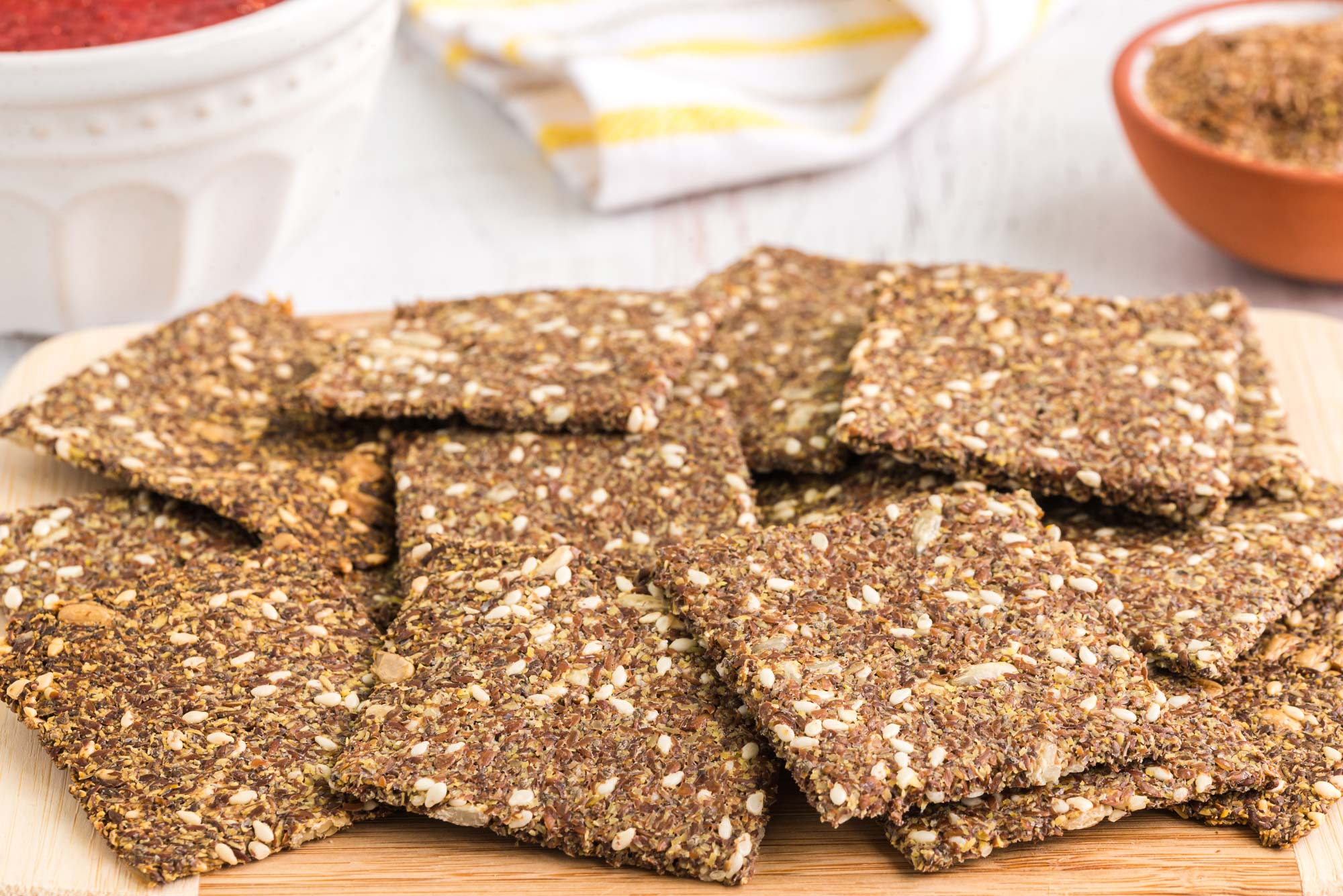Imagine if the different organs and systems in your body weren’t on speaking terms. If you ate a big meal, your stomach might keep that news to itself, and your intestines wouldn’t release enzymes to digest that meal. Your brain would hoard the knowledge of an oncoming car, and neglect to alert your heart to pump more blood into your extremities so you could leap out of the way safely. You might be staggering from fatigue but your pineal gland couldn’t get the other systems in your body to allow you to sleep.
All these communications, and millions more, occur so rapidly that it seems like they’re not even happening. The time from someone sneaking up behind you and popping a balloon to you going into full-on fight or flight appears not to exist — it just happens all at once. In reality, the different organs and systems in the body are in constant communication, all the time. And all that data transfers thanks to little chemical messengers known as hormones.
Hormones are involved in almost all of your bodily processes and are vital to your health. They keep your body functioning optimally. And big changes in their production can trigger or signal a physical transition from one stage of life to another. But sometimes hormone levels can be thrown out of balance. Depending on the cause, hormonal imbalances can be temporary or chronic. And while modern medicine tends to treat them with medications, it turns out there’s often a lot you can do to balance hormones naturally.
What Are Hormones?
Hormones are chemicals that are produced by glands in your endocrine system. The endocrine system is a chemical messenger system made up of feedback loops between hormone-secreting glands and your organs and circulatory system. Essentially, the endocrine system is the information superhighway of your body, allowing all the different systems, organs, tissues, and cells to work together in a healthy way.
The key glands that drive the endocrine system are the pituitary gland, the thyroid gland, the parathyroid glands, the pancreas, and the gonads.
Hormones are essential because they tell your organs what to do and when to do it. If you have too much or too little of a hormone circulating throughout your body, you’ll experience symptoms that can easily escalate into disease. And since the endocrine system is composed of interconnected feedback loops, an imbalance in one hormone often cascades into other imbalances, throwing the entire system out of whack.
Imagine, for example, that your home thermostat stopped working. Instead of sending a message to turn the heat off when the temperature reaches a predetermined threshold, the silent thermostat will sit idly by as the heating unit continues to crank more and more hot air into your home. Not too long after, you’d be sweating uncomfortably, and your energy bill would go through the roof. All because a simple message wasn’t received and acted upon.
Because hormones are so intertwined with your bodily processes, they can affect metabolism and appetite, heart rate, sleep cycles, reproductive cycles and sexual function, general growth and development, mood and stress levels, and body temperature. In other words, they play an important part in just about everything your body does. To maintain your health, you want to keep your hormones at their optimal levels.
How Do Hormones Become Imbalanced?
There are a number of reasons why hormones become imbalanced. Sex hormones can roller coaster during big life changes, such as puberty, menstruation, menopause, andropause (also known as “male menopause,” which may not be as impactful as the female version, but still can affect men’s health, vitality, and mood), and pregnancy. Other hormonal imbalances can be chronic and long-standing.
These may be caused by external factors such as stress or hormone medications. They can also be caused by medical conditions that impact or involve the organs of the endocrine system.
Symptoms of Hormonal Imbalances

How do you know if you’re experiencing a hormonal imbalance? Unfortunately, many hormonal imbalances have similar symptoms, which can make them difficult to distinguish from one another. Collaborating with your healthcare professional can help you figure out what’s going on, and develop an effective management plan.
Some of the most common symptoms of hormonal imbalances can include the following:
- Changes in menstruation
- Erectile dysfunction
- Unwanted changes in sex drive
- Osteoporosis
- Difficulty regulating body temperature
- Mood disturbances like depression and anxiety
- Changes in bowel habits, such as constipation or diarrhea
- Hair growth in unwanted places (for women) or decreased hair growth where it’s wanted (for men)
- Fatigue
- Memory problems
- Sleep issues
- Unintended weight changes, such as weight gain or weight loss
If you suspect that you have a hormonal imbalance, it may be time to set up an appointment with your healthcare provider to determine the next steps.
7 Lifestyle Tips to Balance Hormones Naturally

Whether you’ve already been diagnosed with a hormonal imbalance or just want to adopt a lifestyle that reduces your risk of developing one, below are some tips and habits that can help.
1. Exercise regularly
Being physically active can help keep your hormone levels stable. It may also help boost levels of hormones which retain muscles and that often decline with age. Some of these include testosterone, IGF-1, DHEA, and growth hormone. Regular exercise also keeps insulin levels down, while improving insulin sensitivity. Exercising shouldn’t be a chore, so find some ways to move that you really enjoy. This might be a mix of a few things, like hiking, jogging, walking the dog, strength training, doing yoga, dancing, or playing frisbee.
2. Maintain a healthy weight
Eating too much or too little can lead to hormonal imbalances that encourage unwanted weight gain. Stay ahead of this by practicing lifestyle habits that promote a healthy weight. Overeating has been shown to increase insulin levels and reduce insulin sensitivity, especially in people who are already overweight or obese. You might think that undereating would be an effective weight loss strategy, but it can backfire: severe caloric restriction has been shown to increase cortisol levels, which can promote weight gain while overtaxing the immune system.
When out of balance, other hormones that can influence weight gain include thyroid hormone, leptin, ghrelin (the “hunger hormone”), estrogen, and testosterone. If you find yourself frequently obsessing over food, or fear that you aren’t really in control of your food choices, you may be struggling with food addiction. Our friends at Bright Line Eating have a proven program that may help – find out more here.
3. Stop using electronics close to bedtime
We’re all used to having screens in our faces much of the time, whether it’s for work or scrolling social media. But research shows that screens, and especially the blue light they emit, can disrupt your endocrine function, keep your brain awake when it’s time for bed, and even change your sleep patterns. Try turning off your screens at least two hours before bedtime, or use blue-light blocking glasses.
Researchers think blue light at bedtime is a problem because that light can fool your body into thinking it’s in a different time zone; it’s like you have a constant bad case of jet lag. Scientists studying yeast cells and mice have found their systems operate based on multiple circadian clocks, and surmise that humans also run on particular cycles. For example, the liver is active at night, while the salivary glands in our mouths turn in when the daylight fades.
4. Get sunlight first thing in the morning
Sunlight exposure triggers the release of serotonin, a hormone that boosts mood and enables calm focus. Having low levels of serotonin is associated with a higher risk of depression and seasonal affective disorder. Furthermore, vitamin D is created by your body in response to sunlight exposure. Vitamin D isn’t actually a vitamin, however; it’s a prohormone or substance that your body converts to a hormone. Vitamin D helps regulate other hormones, including adrenaline, noradrenaline, and dopamine production. It also helps prevent your serotonin levels from becoming depleted. Find out more about vitamin D here.
And just as a dark bedroom signals “bedtime” to your body, early morning sunlight tells your daytime cells to “rise and shine.”
5. Bring down chronic stress
Chronic stress leads to persistently elevated levels of cortisol, also known as the stress hormone. This can set us up for overeating, and ultimately, unintended weight gain. We think we stress-eat just as an emotional response, but cortisol actually pulls some levers that truly increase our hunger drive. Cortisol ramps up motivation in general, and our motivation to find and consume food in particular.
Unmanaged stress can also temporarily raise adrenaline levels, which increases your blood pressure, heart rate, and anxiety. The key here is to find ways you can proactively bring down chronic stress levels. Massage therapy, for example, has been found to not only lower cortisol levels but raise levels of good hormones like serotonin and dopamine. Even if getting a massage isn’t possible, you can reduce stress and balance hormones in DIY fashion through mindful breathing, slow movement like yoga or tai chi, and meditation.
6. Get enough sleep
Every night, we get a chance to refuel our tanks through sleep. Not only is sleep good for restoring physical energy, but it also can restore hormonal balance. Not getting enough sleep can impair your ability to keep your appetite hormones in balance, raising blood pressure, and increasing the likelihood of overeating. In fact, the hormonal imbalances triggered by lack of sleep raise your risk for obesity, type 2 diabetes, depression, anxiety, and heart disease.
It works in the other direction as well: certain hormonal imbalances can worsen your sleep. Estrogen allows your body to use serotonin to calm down, progesterone helps calm your mind and helps you fall asleep faster, insulin keeps your blood sugar under control, and melatonin and cortisol work together to regulate your wake and sleep pattern. Of course, for many people getting enough sleep is easier said than done! For our article on the top diet and lifestyle choices that can help you get deep and nourishing sleep, click here.
7. Ditch toxic chemicals
Unfortunately, many of the foods we eat and consumer products we use on a daily basis include ingredients that contain toxic chemicals called endocrine disruptors. These can increase or decrease the production of certain hormones, imitate or convert some hormones into others, inhibit signaling and production, compete with nutrients, and even tell cells to die prematurely. By cleaning up the products you choose to use and the foods you eat, you can reduce your exposure to endocrine disruptors. A few ways to do this include reducing consumption of animal products, choosing BPA-free canned goods, buying organic produce and filtered water, choosing phthalate-free cosmetics, and avoiding coated non-stick pans (more on healthy cookware here).
How to Balance Your Hormones with Food

In addition to maintaining lifestyle habits that minimize stress and promote optimal health, eating a nutrient-dense, anti-inflammatory diet can be critically important to achieving and maintaining a healthy hormonal balance. This also includes knowing what foods and drinks may be triggering imbalances in your body.
Avoid These…
- Refined carbohydrates and added sugar. These are found in many processed and packaged foods, such as cakes, cookies, packaged snack foods, donuts, pastries, and refined white bread and grains.
- Artificial or non-nutritive sweeteners. Research shows that consuming artificial sweeteners is strongly associated with obesity, possibly by causing changes in the gut microbiome and stimulating the secretion of insulin. Some examples of artificial sweeteners, which are often used in place of sugar because they contribute few or zero calories to your diet, include aspartame, sucralose, and saccharin. Find out more about the health effects of artificial sweeteners here.
- Sugary beverages. Including soft drinks, fruit juices, sports and energy drinks, lemonade, and sugar-sweetened coffees and teas. Just one can of soda can have upwards of 40 grams (or around 10 teaspoons) of sugar! For our article on the best and worst sweeteners, click here.
- Caffeine. Found in high concentrations in coffee, tea, and energy drinks. Studies have found that when children are exposed to high doses of caffeine on a long-term basis, they may be at risk for hormonal imbalances related to the adrenal glands that can result in abnormal stress response. Excessive intake of caffeine may also lead to exaggerated sympathetic stress responses among adults, aka “the jitters.” There are health benefits to green tea and coffee. And some people are able to metabolize the caffeine they contain with no ill effects. But others can’t. Listen to your body on this one.
- Alcoholic beverages. Studies indicate that frequently drinking large amounts of alcohol may induce hormone imbalances that impact the whole body, resulting in reproductive abnormalities, a higher risk for cancer, growth defects, thyroid issues, immune dysfunction, and behavioral problems. For our article on how alcohol affects your health, click here.
- Meat and dairy products. Animal products, especially those produced in an industrial farming operation, are frequently found to be contaminated with antibiotic-resistant pathogens, hormones, and steroids. Research suggests that dairy milk can contain estrogens and insulin-like growth factor-1 hormones that play a role in the promotion of breast, prostate, and endometrial tumors.
Eat and Drink More of These…
- Fiber. Fiber is found only in plant foods, so eating an abundance of whole produce (especially with edible skins still intact), whole grains, nuts, seeds, and legumes are the best way to get enough fiber. Fiber can improve digestion and lower the risk for diseases, including those related to imbalanced hormones.
- Plant-based protein. In general, eating protein reduces the “hunger hormone” ghrelin, and stimulates hormones that make you feel full. Some of the most protein-dense plant foods include beans, peas, lentils, tofu, tempeh, nuts, and seeds. Protein from plants offers benefits to the endocrine system. Unlike animal-derived proteins, they are anti-inflammatory. For our article on plant-based protein, click here.
- Herbal teas. Certain herbs may help balance estrogen and progesterone, and herbal teas are a great way to reap the benefits. Some examples include teas made with raspberry leaf, black cohosh, fenugreek, dandelion root, and ginger rhizome. Another potent option is the Adaptogen Blend from Four Sigmatic.
- Organic fruits and vegetables. One of the best things you can do for yourself is to eat more fruits and vegetables, as they’re packed with health-promoting and disease-fighting nutrients. Even better, especially when it comes to hormonal balance, is to choose organic produce as much as possible. Conventionally grown produce is often grown using glyphosate, or RoundUp, an herbicide and known endocrine disruptor. If you’re unable to buy organic all the time, consider referencing the Environmental Working Group’s Dirty Dozen and Clean Fifteen lists to buy organic where it matters most.
- Adaptogenic herbs and roots. These are non-toxic plants thought to help your body naturally resist stressors. Though more research is needed, many people report that their use reduces pain, digestive problems, and insomnia. Some examples include medicinal mushrooms, ginseng, tulsi tea, ashwagandha, and holy basil. Stress can wreak havoc on hormonal balance, and adaptogens offer the added benefit of aiding your body in handling stress naturally. For our article on adaptogens, click here.
Recipes to Help Balance Hormones
These recipes contain plenty of plant-based protein and fiber, which are important for hormonal health. But they take it a step further by offering an array of vitamins, minerals, and phytonutrients to help balance hormones even more. What’s great is that each recipe can easily be made ahead of time so that you have hormone-balancing foods available to you all week long!
1. Asian Quinoa Salad

Not only is this salad extremely simple to make and bursting with flavor, but it also features ingredients that can contribute to hormone health — quinoa and edamame. Quinoa is packed with fiber, which has been shown to help manage blood sugar and prevent excess estrogen in the body. Edamame contains phytonutrients called isoflavones, which have been shown to reduce the risk of breast cancer and breast cancer recurrence. Both quinoa and edamame are packed with plant-based protein.
2. Green Pea Hummus

This could be the ultimate hormone-balancing hummus. Peas are a great source of protein. And tahini is packed with lignans, which are antioxidant-rich plant compounds that behave as a phytoestrogen and can increase or decrease the effects of estrogen in our body based on our very own particular needs. Both peas and tahini are rich in vitamins and minerals, like B vitamins, vitamin E, and zinc, all of which have been shown to help balance hormones.
3. 2-Ingredient Flax Crackers

Hormone-balancing crackers with only two ingredients? Yep! Both flax meal and sesame seeds are packed with lignans. Flax is also packed with the fiber you need for regularity, which helps excrete excess estrogen. Finally, flax seeds are also a great source of omega-3 fatty acids, which are healthy fats that are building blocks for hormones.
Keep Hormones in Balance With a Healthy Lifestyle

Hormones are deeply integrated into your physiology and play an important role in almost every aspect of your health. And there’s an optimal balance for each person, at each stage of life. And while many people struggle with hormonal imbalances at one point or another, the good news is that you can make a huge positive impact with your diet and lifestyle choices. And the same habits that are good for your hormonal balance are also good for your mood, life expectancy, vitality, and waistline. Talk about a twofer!
Tell us in the comments:
- Have you ever experienced hormonal imbalances?
- Have you ever made diet or lifestyle changes that improved your hormonal balance?
- Are there lifestyle changes you can make to help balance your hormones naturally?
Feature image: iStock.com/yacobchuk




